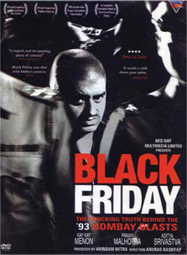Padmavati, one of the most anticipated movies of the year, is in the eye of the storm. Bollywood has always been controversy’s favourite child, but some controversies have spiralled out of control and have had severe effects on the prospects of these movies. This issue, we take a look at some of the biggest controversies surrounding Bollywood films

Padmavati is an Indian epic period drama film directed by Sanjay Leela Bhansali, based on the epic poem Padmavati (1540) by Malik Muhammad Jayasi. The film narrates the story of Padmavati, a legendary Rajput queen. The movie has been beset with controversies since the very beginning. It has been opposed on the grounds that it distorts history and glorifies the antagonist Alauddin Khilji. The film sets were vandalised in Rajasthan, and Sanjay Leela Bhansali was slapped by miscreants. Later, the sets of the film were set ablaze while filming was on in Kolhapur. The protests have intensified to such an extent that the release of the film has been pushed forward indefinitely. Protestors have said that they won’t allow the film’s release to go ahead even if it gets a nod from the CBFC.

Jodhaa Akbar is an epic historical romance based on the Mughal emperor Akbar and his alleged Rajput wife Jodha Bai. The portrayal of ethnic Rajput people in the movie was criticised by members of the Rajput community as misleading, politically motivated historical revisionism that minimised Rajput history. The community’s protests against the film in some states led to the film being banned in the states of Uttar Pradesh, Rajasthan, Haryana and Uttarakhand. However, the producers went to the Supreme Court to challenge it. Later, the Supreme Court of India lifted the ban on screening the film. Upon release, it was a critical and commercial success. The film even won the Audience Award for Best Foreign Language Film at the São Paulo International Film Festival.

Ae Dil Hai Mushkil is a 2016 Indian romantic drama film written and directed by Karan Johar. It features Ranbir Kapoor, Anushka Sharma, Fawad Khan and Aishwarya Rai Bachchan in lead roles. Indian political party, Maharashtra Navnirman Sena (MNS), proclaimed that they would not allow the release of the film, following nationwide protests surrounding the terrorist attack in Jammu and Kashmir on 18 September 2016 . Citing the casting of Pakistani actor, Fawad Khan, in the film, the MNS warned theatre owners around the country to not screen the film, threatening them with vandalism. Eventually, after a promise by Karan Johar that he would henceforth not cast Pakistani actors in his movies, the film was allowed to release. It went on to become a commercial success, grossing over 100 crores.

Black Friday is a 2004 crime film written and directed by Anurag Kashyap based on ‘Black Friday – The True Story of the Bombay Bomb Blasts’, a book by Hussain Zaidi about the 1993 Bombay bomb blasts. The film showed in graphic detail the events of the horrific bombings, and the subsequent investigations by the police. The film was so controversial that the Indian Censor Board did not allow it to be released in India for three years and was finally released on 9 February 2007 after Supreme Court of India stepped in. Upon release, the film received overwhelmingly favourable reviews, and it is widely considered to be director Anurag Kashyap’s masterpiece.

Water is a Indo-Canadian film written and directed by Deepa Mehta, with screenplay by Anurag Kashyap. It is set in 1938 and explores the lives of widows at an ashram in Varanasi. Water is a dark introspect into the tales of rural Indian widows in the 1940s and covers controversial subjects such as misogyny and ostracism. The day before filming of Water was due to begin, the crew was informed that there were complications with their location permits for filming. The following day, they learned that 2,000 protesters had stormed the ghats, destroying and burning the main film set and throwing the remnants into the Ganges in protest of what ultimately were revealed to be false accusations regarding the subject matter of the film. The resulting tensions and economic setbacks led to several years of struggle as Mehta was eventually forced to film Water in Sri Lanka, rather than in India.
By Neeraj Varty